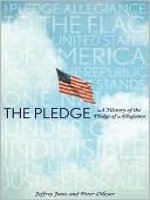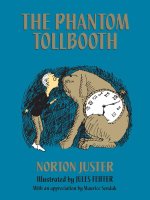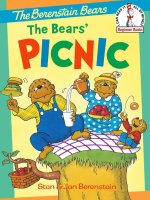Eric berlin the potato chip puzzles the p een (v5 0)
Bạn đang xem bản rút gọn của tài liệu. Xem và tải ngay bản đầy đủ của tài liệu tại đây (2.26 MB, 172 trang )
Table of Contents
Title Page
Copyright Page
Dedication
Acknowledgements
CHAPTER ONE
CHAPTER TWO
CHAPTER THREE
CHAPTER FOUR
CHAPTER FIVE
CHAPTER SIX
CHAPTER SEVEN
CHAPTER EIGHT
CHAPTER NINE
CHAPTER TEN
CHAPTER ELEVEN
CHAPTER TWELVE
CHAPTER THIRTEEN
CHAPTER FOURTEEN
CHAPTER FIFTEEN
WANTMOREPUZZLES?
ANSWERS
Also available
The Puzzling World of Winston Breen
G. P. PUTNAM’S SONS
A division of Penguin Young Readers Group.
Published by The Penguin Group.
Penguin Group (USA) Inc., 375 Hudson Street, New York, NY 10014, U.S.A.
Penguin Group (Canada), 90 Eglinton Avenue East, Suite 700, Toronto, Ontario M4P 2Y3, Canada (a division of Pearson Penguin
Canada Inc.).
Penguin Books Ltd, 80 Strand, London WC2R 0RL, England.
Penguin Ireland, 25 St. Stephen’s Green, Dublin 2, Ireland (a division of Penguin Books Ltd.).
Penguin Group (Australia), 250 Camberwell Road, Camberwell, Victoria 3124, Australia (a division of Pearson Australia Group Pty Ltd).
Penguin Books India Pvt Ltd, 11 Community Centre, Panchsheel Park, New Delhi - 110 017, India.
Penguin Group (NZ), 67 Apollo Drive, Rosedale, North Shore 0632, New Zealand (a division of Pearson New Zealand Ltd).
Penguin Books (South Africa) (Pty) Ltd, 24 Sturdee Avenue, Rosebank, Johannesburg 2196, South Africa.
Penguin Books Ltd, Registered Offices: 80 Strand, London WC2R 0RL, England.
Copyright © 2009 by Eric Berlin.
Drawings by Katrina Damkoehler.
All rights reserved. This book, or parts thereof, may not be reproduced in any form without permission in writing from the publisher, G. P.
Putnam’s Sons, a division of Penguin Young Readers Group, 345 Hudson Street, New York, NY 10014.
G. P. Putnam’s Sons, Reg. U.S. Pat. & Tm. Off. The scanning, uploading and distribution of this book via the Internet or via any other
means without the permission of the publisher is illegal and punishable by law. Please purchase only authorized electronic editions, and do
not participate in or encourage electronic piracy of copyrighted materials. Your support of the author’s rights is appreciated. The
publisher does not have any control over and does not assume any responsibility for author or third-party websites or their content.
Published simultaneously in Canada.
Library of Congress Cataloging-in-Publication Data
Berlin, Eric.
The potato chip puzzles / Eric Berlin. p. cm.—(Puzzling world of Winston Breen)
Summary: Winston and his friends enter an all-day puzzle contest to win fifty thousand dollars for their school, but they must also figure
out who is trying to keep them from winning. Puzzles for the reader to solve are included throughout the text. [1. Puzzles—Fiction. 2.
Contests—Fiction. 3. Mystery and detective stories.] I. Title.
PZ7.B45335Po 2009 [Fic]—dc22 2008033698
eISBN : 978-1-101-02479-9
For Rita and Joel Berlin
Also, a world of thanks to Katherine Bryant, Ana Deboo, Francis Heaney, Dan Katz, Susan
Kochan, Lance Nathan, Trip Payne, Scott Purdy, William Reiss, and Will Shortz.
ABOUT THE PUZZLES IN THIS BOOK
This book contains quite a few puzzles. You can solve them if you want, although you don’t have to
solve them to enjoy the story. Most of the answers can be found in the back of the book. Some of the
puzzles are so important to the story, however, that the answer will appear on the next few pages.
You’ll see which ones those are when you get to them. Note that you can’t really skip those puzzles
and come back to them later, because you’ll learn the answer almost immediately. Take a few minutes
to try them, and then continue reading.
And if you don’t want to write in this book, just head over to www.winstonbreen.com. There you
can download and print out all the puzzles. Happy solving!
CHAPTER ONE
WINSTON BREEN DIDN’T know why it was called “study hall.” They weren’t in a hall, and
hardly anyone studied. Sometimes you’d find kids finishing homework due the next period. You could
tell that’s what they were doing—they had a wide-eyed, racing-the-clock air to them, and they
gripped their pens so hard that blood stopped flowing to their fingertips. But this was the last week of
school, and there was no more homework. Kids sat in little clusters, talking semi-quietly,
occasionally bursting into laughter, which would attract a glare from Mrs. Livetta, the study hall
monitor. A couple of kids were reading, and one girl, with hypnotic concentration, was covering her
desktop with elaborate graffiti.
Winston, of course, was solving a puzzle. He kept a couple of puzzle books in his schoolbag at all
times. There had been a day earlier in the year when he found himself puzzleless in study hall, and
Mrs. Livetta refused to let him go to his locker. With nothing to read and nothing to solve, he sat there
for a while in utter boredom. In fact, that was the day he discovered that the letters of BOREDOM can
be scrambled to make the word BEDROOM. That was a pleasing discovery, at least.
Now he was always prepared. He clicked a few times on his mechanical pencil and doodled in the
margin while he thought.
In a word square, words read the same both across and down. In the following two puzzles,
solve the clues to create the word square.
This last word square has five letters in each word . . . and the clues aren’t given in order,
so you’ll have to figure out which word goes where.
(Answers, page 239.)
“Winston!” Mrs. Livetta all but screamed in his ear.
Winston jerked like a freshly caught fish, nearly falling out of his chair. The other kids in the study
hall laughed. Mrs. Livetta was standing in front of him, hands on hips.
“Wh-what? Yes?” Winston tried to regain his wits. He knew what had happened. Sometimes he
became so absorbed in a puzzle that the world around him simply faded away. Mrs. Livetta must have
called him once or twice from the comfort of her chair and then, when Winston didn’t answer, said
his name louder, and then louder still, and then she finally came over and yelled at him. The next step
might have been to hit him with a textbook.
The kids laughed again, but Mrs. Livetta wasn’t laughing. “You are wanted down at the principal’s
office. Didn’t you hear the announcement?” She pointed at the loudspeaker on the wall.
Winston reddened. It was worse than he thought. The loudspeaker, which was indeed loud, had
barked his name, and he hadn’t heard it at all. Wow. That had to be some kind of record.
Wait a minute—the principal’s office wanted to see him?
“Why does the principal want to see me?” he asked.
“I don’t know,” Mrs. Livetta said. “It’s a loudspeaker—you can’t have a conversation with it. Ask
when you get down there. Now go!”
Was he in trouble? He couldn’t see how. Was something wrong at home? His mind reached in every
direction at once as he walked through the empty hallways down to the main office. As he rounded the
corner to the school’s large central lobby, the intercom system crackled and chirped. The school
secretary said once again, in the voice of an old lady robot: “Winston Breen, please report to the
principal’s office. Winston Breen, to the principal’s office.” Boy, whatever the reason was, they sure
wanted to see him. He bit his lower lip and tried to prepare himself.
When he reached the main office, Mrs. Lembo was still returning to her desk from the PA system.
“Ah, there you are,” she said.
“Yes, sorry,” said Winston.
“Well, go right in. Mr. Unger’s expecting you.”
The principal’s office was down a short hallway, ending in a door you never wanted to open.
Winston had never had a reason to knock on this door, and that was fine with him. He was still trying
to figure out some way he might be in trouble. He took a deep breath and knocked softly. “Come in,”
said a brusque voice. Winston creaked the door open.
Mr. Unger was not behind his desk. He was up and pacing. “Ah, Winston. Good. Thought maybe
you were absent today. Or cutting class!”
Winston recognized that as a joke but had no idea how to respond. “Yes, no, um, I was—”
But Mr. Unger wasn’t looking for any explanations. “You’re still the puzzle person, right?”
“Sure. . . .” Winston had shuffled entirely into the room now. He watched the principal pace back
and forth, glancing occasionally at a piece of paper in his hand. When Mr. Unger walked the halls in
his gray suit and shiny shoes, he was a severe, frowning authority. Now he didn’t look stern at all. In
fact, he looked rather like—Winston could hardly believe it—an excited little kid.
“All right. All right. Good,” he said. “I want you to look at this. Here.” Mr. Unger thrust the paper
into Winston’s hands.
It was quite fancy—stiff and crackly, and the color of rich cream. On it were a bunch of letters and
numbers, written in ink:
(Continue reading to see the answer to this puzzle.)
This was not at all what he had expected from a visit to the principal’s office. “What is this?”
asked Winston.
“I was hoping you could tell me.”
“It looks like a code of some kind. Where did it come from?”
Unger shook his head. “Don’t know. It was in my mailbox this morning, but there was no return
address.”
“Was there a postmark?”
Mr. Unger stopped pacing. “The postmark! I didn’t think of that. I knew you were the right person
to call on this.” He sat down in his chair, leaned over, and dug through his garbage pail, looking for
the right envelope. “Aha, here we go,” he said. The envelope was fancy, too. Mr. Unger brushed it off
and looked at it, frowning.
“What does it say?” said Winston.
Mr. Unger didn’t respond. He just handed the envelope over.
Winston looked at the front. There was no postmark. There was no stamp. “Oh,” he said. He
decided to sit in one of the two chairs in front of the principal’s desk.
“Someone must have come in and slipped it into my mailbox,” said Mr. Unger.
“I guess that means it’s from someone nearby,” said Winston.
Unger nodded his head. “I guess so. I guess so. I’ll ask if any of the secretaries saw anything. But
the main office is busy all morning. Anybody could have come in and put something in my mailbox.
Can you figure out what it is?”
“I don’t know,” said Winston. “It could mean anything. Maybe it has something to do with a map.”
“A map,” the principal repeated, not understanding.
“You know how maps have letters across the top and numbers down the side? So you can find
locations on them?”
“Ah, yes,” said Mr. Unger, sitting back in his chair. “Coordinates. So we need a map . . . a map of
what? The town?”
“I don’t know,” Winston said again. “Maybe.”
“I can have Mrs. Lembo bring one in.”
Winston shook his head. “The problem is, which map? The map in the phone book, the map in the
road atlas? They’re all different.”
“Hmm,” said Mr. Unger, frowning.
Winston added, “And do we need a map of the town or the state or the country? We could be
staring at maps the rest of our life.”
“All right,” said the principal. “Then what do you suggest? Maybe it’s not a code. Maybe it’s
something else.”
“What?”
“Another kind of puzzle, maybe. A connect the dots.”
Winston blinked. “What?”
The principal leaned forward. “Can you connect these letters and numbers in some way? Draw
lines between them? Start at A1 then go to A2 . . . ?”
Winston thought about it. It didn’t sound right, but it was more than he’d come up with. But then he
noticed something. “There is no A1,” he said. “Or A2. The first pair alphabetically is”—he scanned
the paper—“A4. And then there’s no A5.”
“Hmm,” said Mr. Unger.
Winston said, “I still think it’s a code.” He stood up and started pacing, just as the principal had
been when he arrived. “Each letter and number pair is going to stand for a letter. Or a bunch of
letters. Or . . .” He drifted off, staring at the paper. A wisp of an idea had breezed through his mind,
fluttering just out of reach. “There’s no A5,” he said again.
Mr. Unger said, “Do you think that’s important?”
“Maybe,” said Winston, rubbing his forehead. The first pair was C3. If that represented some other
letter, what letter could it be? Maybe it was three letters past C . . . which meant F.
Winston’s eyes widened.
Mr. Unger saw that. “You have an idea, don’t you? Did you just solve it?”
“I think so,” Winston said, and told him his idea.
The principal took the paper back. “So then J plus five is the letter O . . . S plus two is the letter U .
. . and Q plus one is R.”
“That spells FOUR,” Winston said, getting more and more excited.
They went through the whole code, counting out the alphabet again and again like students in a very
strange nursery school. When they were done, they sat back and looked at what they had written:
FOUR ZERO EIGHT SEVEN FOUR EIGHT SIX
Winston was elated, but the principal was frowning at the answer. “Seven numbers,” said Mr.
Unger. “That’s not a very satisfying solution. What does it mean?”
Winston said, “Maybe it’s a phone number.”
Mr. Unger rubbed the top of his balding head. “What is this? If somebody wanted me to call them,
why not just give me the number? Or, heck, why not call me? What’s with all this spy movie stuff ?”
“I don’t know,” said Winston. “Let’s call it and see.”
A look of bewilderment on his face, Mr. Unger reached over and hit the speaker button on his sleek
black telephone. A dial tone filled the room. The principal booped in the seven digits. There was a
long, tense pause as the phone rang several times, and then a gentle click, followed by a booming
megaphone of a voice. Mr. Unger hastily lowered the volume a couple of notches.
“You did it!” said the voice. “You, my friends, have broken the code! And now I would like to
warmly invite you to a very special contest. I am Dmitri Simon, the president of Simon’s Snack
Foods. And I am going to give fifty thousand dollars to one lucky school.” Mr. Unger’s jaw dropped
open. “You’ve solved the first puzzle, but there will be many more puzzles to solve. On this Friday,
May 18, at ten A.M., send three students and one teacher to Simon’s Snack Foods, 1 Livingston
Avenue, in Maplewood. At the tone, please tell me the name of your school, so that I know who to
expect. And congratulations on making it this far. I will see you soon!”
There was a sudden beep, and the principal leaned in and said quickly, “Walter Fredericks Junior
High, Glenville. Bernard Unger, principal.”
Mr. Unger turned off the phone. His eyes were wide open and dazzled. “Fifty thousand dollars. Did
he say fifty thousand dollars? If we solve a puzzle contest?” He gripped his armrests as if he thought
his chair might suddenly fly. “Can this be real?” he said.
“You can call the company and find out,” Winston said.
The principal nodded. “I will. I definitely will.”
A slow smile crept to Winston’s face. “If it is real, I volunteer to be one of those students,” he said.
“What? Of course you do. You better,” said Mr. Unger. “Get two more kids. Whoever you want.
Fifty thousand dollars!” The principal stood up, his eyes full of wonder. He looked like he had just
seen a magician do the most amazing trick ever. “I’ll find a teacher to go with you,” he said. “It’s the
day after school ends, and technically, everyone will be on vacation. But I know a few of them won’t
mind. Yes. Let me think. . . .” He gazed thoughtfully up at the ceiling. After a moment, he began pacing
again.
Winston got the feeling his meeting with the principal was over. Mr. Unger now looked positively
giddy, like a man who has just arrived at his own surprise birthday party. “We can’t lose, can we?
We just can’t lose!”
“I don’t know,” said Winston. “I don’t want to promise anything—”
“Oh, I know, I know,” said the principal. “But I can feel it. Go! Get your team together! We don’t
have much time! Just a couple of days! We’re going to win!”
Winston nodded enthusiastically and backed out of the office. He didn’t tell the principal that he
didn’t need to get his team together—he knew exactly who his teammates were going to be. All he
had to do now was tell them. Winston took off running down the hallway.
CHAPTER TWO
THE NEXT PERIOD WAS social studies, the one class he shared with Mal and Jake, his two best
friends. The bell rang, and the hallway filled with kids. Winston ran as fast as he could through the
crowd, weaving between groups of kids like someone in urgent need of a bathroom. That wasn’t the
problem, but it sure felt like something might explode, if he didn’t tell his friends the exciting news.
When he reached the classroom, Mal and Jake were already sitting there, laughing about something.
Winston started talking even before he reached them. He barely knew which wonderful thing to share
first, and he wound up saying something like, “There’s a puzzle thing, and we can be the team! And
all the money’s for the school!”
His friends gawked at him like he was insane.
“Was that English?” said Mal.
“I heard the word puzzle,” said Jake.
“There’s a surprise,” said Mal.
Winston took a breath, sat down at his desk, and tried again. This time he managed to tell the story
in something resembling a logical order, though he had to speed up the ending a little as their teacher,
Mr. Nelson, breezed in, shutting the door behind him.
Tossing his briefcase onto his chair, Mr. Nelson said, “All right, all right, the school year may be
coming to an end, but this is still my time, and we have work to do.” There was a murmur of
disapproval from Winston’s classmates but no real surprise. Mr. Nelson wasn’t one of those teachers
who played games with the kids during the final week of school. He intended to teach them right up to
the last bell on the last day. Indeed, if the bell system in the school ever broke down, Mr. Nelson
would likely keep lecturing until the end of the world.
Winston tried to squeak in the conclusion to his story. He whispered, “And I can choose whoever I
want for the team. You guys in?”
Mr. Nelson pegged him with a chilly stare. “Winston Breen, who should be speaking?”
Winston sat a little more attentively. “Not me,” he said.
“Kee-rect,” Mr. Nelson said. He turned to the class at large. “We’re going to go over your final
essays today. How have some of you managed to get through this entire school year without learning
how to write? Let’s take a few examples here. . . .”
Winston was still vibrating like a tuning fork. He’d blurted out his story about the puzzle hunt, but
he didn’t know if his friends would be able to join him. He looked at them, eyebrows raised in a
querying Well . . . ?
Jake glanced over at him, saw his expression, and nodded, smiling. He was in. Mal saw the
exchange and nodded too. Winston sat back, pleased beyond measure. He had his team. Friday was
going to be a great day.
The next class was science, but Winston wasn’t there for very long. In a way, he was never there. He
was off in daydream land from the first minute, wondering what would happen on Friday. Would they
simply be handed a bunch of puzzles to solve? Would they have to run around looking for things? He
envisioned a hundred kids set loose in the Simon’s Snack Foods factory, dashing between giant
popcorn poppers and potato chip fryers, dodging splashes of hot oil in search of a vital clue.
How many other schools had received the code, and how many had cracked it? Would some of the
teams have bigger kids from high school? Winston thought he could stand his ground in a puzzle
competition against kids his own age. He wasn’t sure if that would be true against high-schoolers.
He was brought back to reality by a knock on the classroom door.
Mr. Garvey, a math teacher who taught the advanced kids, peeked in. “I wonder if I might speak to
Mr. Breen for a moment,” he said. The class turned, and everyone gave Winston a look that was half
curiosity and half pity.
The science teacher nodded, and Winston followed Mr. Garvey out into the cool, empty hallway.
Mr. Garvey was a tall man with salt-and-pepper hair and thick matching eyebrows. He had a series of
wavy, wrinkly lines in his forehead, as if he had gone into deep thought one day and had never come
back out. Mr. Garvey smiled down at him, adding a few more wrinkles to that wide forehead. “Well,”
he said, “Winston Breen. I don’t think we’ve officially met.”
“In the cafeteria a couple of times,” Winston said, “when it was your turn to watch everyone.”
“Ah, yes,” said Mr. Garvey. “You’ll excuse me if I don’t recall. That must mean you’re one of the
good kids. I spend those shifts in the cafeteria making sure the troublemakers don’t start using the
chicken fingers and fish sticks as deadly weapons. I’m sure eating them is deadly enough.” Mr.
Garvey laughed at his joke.
Winston smiled, but with some effort. Mr. Garvey’s laugh didn’t sound altogether real. It was the
laugh of a dentist looking to lighten the mood before he stuck something sharp in your mouth. Winston
thought he knew why Mr. Garvey was here.
Sure enough, Mr. Garvey said next, “So, our principal has shared a fascinating story with me.”
“Oh?”
“He’s asked me to accompany you on this puzzle expedition on Friday. And of course, I agreed.”
Winston nodded, not daring to let his smile falter. This was exactly what he’d been afraid of. Mr.
Garvey was nobody’s favorite teacher. The students in his advanced math class dreaded being called
upon—if they got an answer wrong, Mr. Garvey was more than happy to make fun of them in front of
the whole class. It was even rumored that Mr. Garvey once made his entire Mathletes team cry after
they had lost a crucial match.
Winston was on track to be in Mr. Garvey’s class the following year and wasn’t looking forward
to it. Now it looked like he was going to get the full Garvey Experience a few months earlier than
expected.
Mr. Garvey said, “I’m looking forward to working with you on this, Winston. Of course, I’m aware
of your reputation as a puzzle lover. Quick! Why did the chicken cross the road?”
Winston looked startled. “Uh,” he said. That was a riddle from first grade. Was Mr. Garvey
serious?
Mr. Garvey smiled even more broadly and smacked Winston lightly on the shoulder. He said, “Just
kidding. I’m sure you’re light-years beyond silly little riddles. Indeed, I think you’ll prove to be the
cornerstone of the team, and I applaud Mr. Unger for bringing you on board.” Mr. Garvey beamed
down at him. “Say, I’ve got a little puzzle for you, if you want to hear it. A real puzzle. Nothing to do
with chickens.”
Winston nodded. “Sure.”
“A math puzzle, of course, since that’s my field. Ready?”
“Sure,” Winston said again.
Mr. Garvey cleared his throat a little and said, “I went to a horse race, and I counted all of the
horses’ legs plus all of the jockeys’ legs. The total came to 108. How many horses were in the race?”
(Answer, page 239.)
After Winston had solved the puzzle, Mr. Garvey said, “I wanted to talk to you about who the other
teammates should be. There are a few sharp kids on my Mathletes team. I don’t know if you know
them. . . .”
Winston looked surprised. “I already chose my teammates,” he said.
Mr. Garvey stared down at him. His fatherly smile tightened but did not fade. “You did? Don’t you
suppose we might have collaborated on this?”
“I didn’t know you were going to be the chaperone.”
All at once, Mr. Garvey’s smile collapsed and vanished. Without it, Mr. Garvey’s face took on a
chiseled-from-stone look. He said sharply, “I’m not going to be a chaperone, Winston. I will be a
coach, mentor, and guide. It’s not my job to drive you around. It’s my job to see that we win. You
understand that, don’t you?”
Winston nodded and tried not to look as sick as he was starting to feel. “Yes. Sorry,” he said.
“And part of that job,” Mr. Garvey continued, “is making sure we have the best possible team.
Who is it that you’ve chosen to join us?”
“My friends Mal and Jake.”
The math teacher took a deep breath. “Would I know either of these young men?”
“I don’t know. Mal is in the drama club. And Jake is on the baseball team.”
“An actor and an athlete,” said Mr. Garvey.
“Actually, Mal works backstage.”
Mr. Garvey nodded and flicked a hand in the air, not caring if Mal worked onstage, backstage, or
collected tickets. “I’m sure they’re very good at what they do,” he said. “But I don’t think there’s
going to be much call for moving props around or tackling the other team.”
Winston couldn’t believe it. Mr. Garvey wanted to kick Mal and Jake off the team. He tried not to
let panic show in his voice. “They’re good puzzle solvers. They both are.”
Mr. Garvey sighed and stared at Winston thoughtfully. “Winston, do you want to win this thing?”
“Yes. Sure I do.”
Mr. Garvey found his smile again. “I believe you. I really do.” But he shrugged, and the smile
turned doubtful. “You also, I imagine, want to hang out with your friends and have a good time. Don’t
you?”
“Well, yeah.”
“That is my point,” said the teacher. “You have the whole summer to have fun with your friends. I
think it would be better if you considered Friday’s adventure to be an important job you’ve been
asked to do. That we have been asked to do. You and I.”
A job? Mowing the lawn—that was a job. This was a spectacular event that he could hardly wait
to begin. Still, he understood what Mr. Garvey was getting at, and he said, “We’re going to take it
very seriously. We’re not going to goof around. I promise. We all want to win.”
Mr. Garvey nodded, that doubtful expression lingering on his face. “I’m sure. I’m sure. And you
say your friends are good puzzle solvers. Maybe that’s so. But I teach the advanced math classes here
and run the math club, as well. We have some very bright students who I think might be a better fit on
something like this.”
“I already told my friends they could come along.”
“Yes, yes. That is regrettable. I tried to contact you quickly so that we might work together to build
the best possible team. You work fast.”
“Mr. Unger said I could choose whoever I wanted,” Winston said.
Mr. Garvey’s eyes flared. “And maybe he got a little caught up in the excitement of the moment.
Perhaps he forgot to consider what was best for the school.”
Winston shook his head. “I can’t just tell them they’re not invited.”
“No, no, I wouldn’t make you do that,” Mr. Garvey said with sympathy. “You leave that to me. I’ll
tell them it was a misunderstanding and that you didn’t have the authority to invite them in the first
place. They’ll get over it, I promise. I’ll have the main office page them right after class. What did
you say their names were again?”
Winston was frozen. All he could do was blink stupidly at the math teacher. The simple act of
saying his friends’ names felt like a betrayal. How had everything fallen apart so quickly?
And who would replace Jake and Mal? The advanced math kids were all older—Winston hardly
knew them. He’d be solving with strangers instead of with his best friends. In no time flat, Mr.
Garvey had ripped all the fun out of a one-of-a-kind experience.
Mr. Garvey said, “Winston? Hello?”
Not really thinking about what he was about to do, Winston said slowly, “That’s all right. I’ll tell
them. You’re forming your own team.”
Mr. Garvey looked surprised. “Are you sure? I know they’re your friends. I don’t mind breaking
the news to them. If they’re going to be angry at someone, let them be angry at me.”
“No, I’ll do it. I’ll tell them all three of us are being replaced.”
“What?” Now it was Mr. Garvey’s turn to blink. “No, no. You’re still on the team.”
Winston shook his head. “I don’t want to do it without my friends,” he said. Which wasn’t exactly
true. He wanted to do it very much, and he could hardly believe the words that were coming out of his
mouth. But in some way he couldn’t explain, not going was more important than going without Jake
and Mal. He’d read about it afterward, or call up the company and see if he could get the puzzles
when the event was done. It wouldn’t be the same thing, but he couldn’t invite his friends and then just
as quickly cut them out. They would understand, and they probably wouldn’t hold it against Winston.
But they would also remember.
Mr. Garvey, frowning, stared at Winston. He said, “I thought solving puzzles was your favorite
thing to do.”
“It is.”
“But you’re going to pass up a full day of solving puzzles, simply because your friends can’t come
along? That seems a little foolish to me, Winston. If you don’t mind me saying.”
Winston shrugged. He gazed off down the hallway—he couldn’t look at Mr. Garvey full in the face.
“I think I’d feel bad all day long,” he said, keeping his voice calm. “I told them they could come, and
then if they’re not there . . . I guess I just don’t think it would be fun.”
Mr. Garvey said, “Maybe it wouldn’t be fun. Maybe it would be hard work. But at the end of the
day, you’d bring home a large financial reward to your school. Doesn’t that make it worth it? Why
don’t you think of it that way?”
Winston said nothing. He was afraid Mr. Garvey would talk him out of quitting. Part of him was
hoping this would happen.
Mr. Garvey continued, “I think you have a responsibility, Winston, to attend this event and do your
best at it. No matter who your teammates are.”
A new, small realization poked its way through Winston’s anger and disappointment. In fact, it felt
a little bit like solving a puzzle: He’d picked up on the clues that were right in front of him and
understood how they fit neatly together. Mr. Garvey had an entire class of smart kids to draw from,
and yet he was trying quite hard to convince Winston to stay on the team. Quite hard.
“This is an opportunity for you,” Mr. Garvey said, “to give something back to your school. Do you
understand?”
Winston said, “You really want me to be on the team.”
Mr. Garvey gave a small bark of laughter. “That’s what I’m trying to tell you.”
“You don’t think you can win without me.”
Mr. Garvey looked surprised and then turned stony again. “I wouldn’t go that far. I teach a lot of
bright students. Some of them like puzzles very much.”
“This will be more than math puzzles, though,” Winston said. “It’ll probably be all kinds of
puzzles.”
Mr. Garvey nodded slowly, aware he was being backed up against a cliff. “You’re probably right.
That’s why I think it would be best if you stayed on the team.”
Mentally crossing his fingers, Winston said, “I’ll stay on the team if my friends can stay.”
The math teacher crossed his arms. “And if not?”
Winston shrugged again.
The stony look on Mr. Garvey’s face intensified. He shook his head in disbelief. “Are you playing
hardball with me, Winston?”
“No,” Winston said, although he knew the answer was yes. “I’m just saying that we already have a
good team. That’s the team I want to be on.”
The teacher gaped down at him for several moments. He blew out a long breath and said, “Look at
this from my point of view. Who are these friends of yours? They aren’t elite students, or I’d have
heard of them. One of them may be a fine athlete, but athletes don’t tend to be master puzzle solvers.”
He searched around for some new way to salvage the situation and settled on, “Did I mention to you
how much I want to win this thing?”
“They’re both good thinkers,” said Winston. “We’re a good team. You’ll see.”
Mr. Garvey thought about it, shook his head briefly, and threw his arms out wide in a gesture of
surrender. “I guess I will. You win, Mr. Breen.”
Winston was hugely relieved. “Thank you,” he said. He almost extended an arm to shake Mr.
Garvey’s hand in gratitude but stopped himself from doing that. “It’ll be fine, I promise.”
Mr. Garvey nodded, not wanting to discuss it any further. Winston was happy, but Mr. Garvey
clearly was not. The teacher dug through the leather bag he was carrying and brought out a piece of
paper and a pen. “Give me your address,” he said. “I’ll pick all three of you up at your house at eight
thirty on Friday morning.”
Winston wrote his address and handed it to the math teacher. Mr. Garvey glanced at it, then said,
“Okay. I’ll see you in a couple of days. Be ready.” He stalked off down the hall, all in a rush.
No, he definitely didn’t look happy.
“YAAAGH!” cried the knight as the blade of a sword separated his head from his body. The headless
knight fell to his knees and turned to dust. Then the dust itself vanished. When things died in this video
game, they died permanently.
“You did it again!” said Jake, frustrated. “How did you do that?”
“When you just stand there gaping, you make it real easy,” said Mal.
“I don’t just stand there!”
“You do, all the time! I can tell when you’re trying to push the buttons for a special move. You take
your eyes off the game and look at the controller, and your knight stands there like he’s birdwatching
or something.”
Jake stood up, aggravated. “This joystick has more buttons than an airplane cockpit,” he said.
“Who can keep track of them all?”
“Yeah, yeah,” said Mal. He turned to Winston, who was on the couch waiting for his turn. “Win!
You’re up. Your turn to take on the master.” He blew on his knuckles like his hands were registered
weapons.
They’d been addicted to 10,000 Swords for a few weeks now, and even though it was Winston
who owned the game, Mal had become the undisputed champion. Winston was passable, but Jake,
considering his dexterity on the baseball field, was surprisingly hopeless. He once impaled himself
on his own sword before his opponent could get a swing at him. They couldn’t even figure out how
Jake had done it. They’d spent half an hour trying to do it again, with no success.
Jake moved to the sofa, and Winston picked up the controller. Mal pushed the start button, and two
warriors prepared to duel in a bleak castle dungeon.
As the swords clanged together, Jake said, “So is there anything we have to do to get ready for this
contest?”
Winston shook his head, focused on the game. “I can’t think of anything. I wish there was. I hate
waiting.”
Mal’s knight jumped around, baiting Winston into making a move. Mal said, “And we’re stuck with
Mr. Garvey as our chaperone? Can’t we get anybody else? I mean it—anybody else on earth?”
“I wish,” said Winston. “But Mr. Unger chose him, so that means he’s the guy. There aren’t that
many teachers willing to give up their first day of summer vacation.”
“I never thought of it as their summer vacation,” said Jake.
“Yeah, me neither,” said Mal. His fighter lunged forward.
The phone rang. “KATIE, GET THE PHONE,” Winston yelled up to his sister, while his fighter
ran away from his opponent. The phone rang again. “KATIE!”
“Want me to get it?” said Jake.
“Yeah. Ugh!” Mal’s fighter smacked him a good one.
Jake picked up the receiver. “Hello?” He listened for a moment. “No, he’s in a swordfight right
now. Who is this?” He listened for a moment and then said, “Who?”
Winston glanced over and saw confusion on Jake’s face. That was all the opening Mal needed, and
a moment later, Winston’s knight was a pile of dust dissolving on the castle floor. “Oh, nuts,” said
Winston. “That’s not fair. I got distracted.”
“That’s why you’re dead,” Mal pointed out.
Jake waved the phone and said, “He won’t say who he is.”
Winston stood up. “Huh? What do you mean?” He took the phone. “Hello?”
“Winston Breen?” It was a deep male voice.
“Yeah?” said Winston.
“Did you break the code?” This was said in what Winston guessed was supposed to be an
ominous, mysterious tone. It didn’t quite get there. And now that the voice had said more than two
words, Winston thought it might be a kid lowering his voice to sound older.
“Who is this?” he said.
His question was ignored. “Did you break the code?” whoever it was asked again, in the slow,
deep voice of a summoned demon in a horror movie. Except this voice cracked a little on the final
word.
Well, he must be talking about the principal’s code—the one that got them into the puzzle event.
What else could he mean? Winston said, “Yes, I did.”
“Then . . . I’ll be seeing you,” said the voice, dropping to a dramatic whisper. There was a click as
the mystery caller hung up.
What was that? Winston, baffled, slowly hung up and stared at the phone as if another bizarre call
might come through at any second.
Mal and Jake were looking at him. “So who was it?” Mal asked.
“He didn’t say.”
His friends glanced at each other. “Well, what did he want?”
“He wanted to know if I cracked the code. And he wanted to tell me that he’d be seeing me.”
They considered that.









